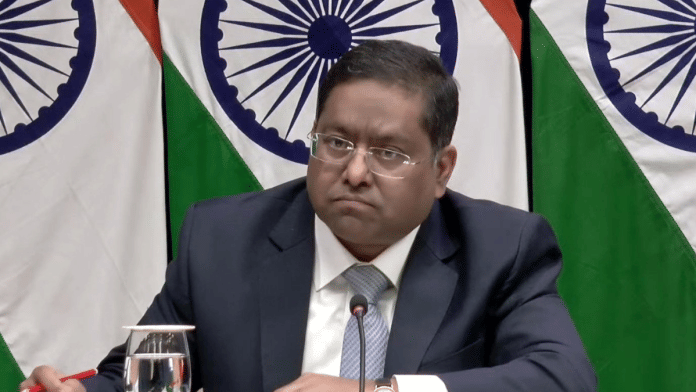New Delhi: India Wednesday expressed condolences over the tragic loss of lives in a bombing in Pakistan’s Balochistan province, while firmly rejecting accusations by the Pakistani military that India was behind the attack. The incident took place in Khuzdar, a city in southwestern Balochistan, when a suspected vehicle-borne improvised explosive device (VBIED) rammed into a school bus ferrying students to the Army Public School.
At least six individuals, including four children, were killed and nearly 40 others injured, according to Pakistan’s Interior Ministry.
In the immediate aftermath, Pakistan’s military PR wing, Inter-Services Public Relations (ISPR), issued a statement blaming India. It alleged, without presenting any evidence, that Indian “terror proxies” were behind the bombing, once again accusing New Delhi of targeting civilians and seeking to destabilise Pakistan.
“Indian terror proxies are being employed as a state tool by India to foment terrorism in Pakistan against soft targets such as innocent children and civilians,” the ISPR said.
India’s Ministry of External Affairs (MEA) responded the same day, dismissing the allegations as “baseless” and “diversionary”.
“India condoles the loss of lives in all such incidents,” MEA spokesperson, Randhir Jaiswal, said in a statement. “However, to divert attention from its own failings and its reputation as the global epicenter of terrorism, Pakistan habitually blames India for its internal issues.”
“This attempt to hoodwink the world is doomed to fail,” he added.
So far, no group has claimed responsibility for the attack. However, suspicion is likely to fall on militant outfits active in the region, such as the Balochistan Liberation Army (BLA) and Tehreek-e-Taliban Pakistan (TTP), both of which have previously targeted civilians and security forces. Adding to the mystery is the timing of the attack.
Despite schools being reportedly closed across Balochistan that day, the targeted bus was still ferrying students to the Army Public School in Khuzdar.
This marks the first known attack specifically aimed at a school bus in Balochistan.
In its statement, the ISPR also linked the attack to recent hostilities, claiming India had “failed” to counter Pakistan’s Operation Bunyanum Marsoos, and that Indian proxies were now “being hunted down by military and law enforcement agencies”.
Pakistan’s Op Bunyanum Marsoos came in retaliation to India’s Operation Sindoor, a targeted strike on nine terror camps, launched in response to the 22 April Pahalgam terror attack, which resulted in the loss of 26 lives and was carried out by Pakistan-backed and trained terrorists. As ThePrint reported earlier, on the day Operation Sindoor was initiated, Pakistan had “brusquely rejected” a request from Indian Director General of Military Operations (DGMO) Lt Gen Rajiv Ghai warning of a “severe and inevitable response”.
However, by the 10 May, Pakistan was reaching out to seek a ceasefire, leading to a cessation of hostilities and an understanding between the two sides.
(Edited by Amrtansh Arora)
Also Read: Baloch separatist group BLA claims it’s killed six Pakistan Army personnel in IED attack






